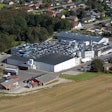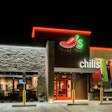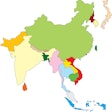A growing number of issues and events impact the animal feed industry, both short-term and longer term. In this issue, Feed International invited four leaders from the feed ingredient sector to provide their perspectives on the state of the industry, today and tomorrow, with a special emphasis on the largest feed-producing region in the world.
We asked what has led them to prosper in an often rapidly changing environment, as well as what issues merit greatest concern for North America and the global feed business. Finally, we asked what prospects get them most excited about the future of this business.
Dr Pearse Lyons is founder, owner and president of Alltech. A scientist born in Dundalk, Ireland, Dr Lyons envisioned using natural yeast fermentation and natural enzyme technology as the driving force for providing new alternative technologies for the animal feed industry. He founded the company in Kentucky, USA, in 1980. From a turnover of US$1 million dollars in the first year of operation, Alltech has taken commanding positions in the food and feed sector. Today, Alltech is growing at a rate of over 25 percent per annum and has a current turnover of US$300 million. What began as a two-man operation has grown to a company employing 1,700 worldwide. Headquartered in the USA and with a European Bioscience Centre in Ireland, Alltech has developed a strong regional presence in North America, Europe, Middle East, Latin America and Asia-Pacific. It also has 14 production facilities strategically located throughout the world.
Bob Riley is president and CEO of Feed Energy Company. Feed Energy buys, processes, and markets inedible, blended vegetable oil and animal fat products, which are used primarily as premium performance ingredients in poultry and livestock feed. In addition, the company has products for dust control and industrial and fertilizer applications. The company is one of the largest acidulators of soybean soap stock in North America and produces scientifically balanced ingredients specific to its customers' needs. The privately held company has been headquartered at its original production facility in Des Moines, Iowa, USA, for more than 30 years, with additional Iowa production facilities in Sioux City and Pacific Junction, Iowa. Each Feed Energy location is certified as a Safe Feed/Safe Foods facility. In 2006, Riley started FEC Solutions to serve the burgeoning biorenewable fuels industry with co-product solutions. This new company draws upon Feed Energy's extensive experience in oils and co-products.
Laurent Dussert is ruminant product manager, Lallemand Animal Nutrition, North America. Lallemand, Inc is a privately held Canadian company specializing in yeast, bacteria and yeast derivatives for the animal nutrition, baking, winemaking and human nutrition industries. Lallemand is a major supplier of both yeast and bacteria. The company has four major divisions: North American Bakers Yeast and Ingredients (based in Chicago, Illinois, USA), European Yeast (based in Vienna, Austria), Specialty (based in Toulouse, France) and Lallemand South Africa (based in Johannesburg, RSA). Administrative offices for the parent company are in Montreal, Quebec, Canada. The Specialty Division is a technically driven business focusing on new applications in fermented foods and beverages, in fuel ethanol, in human and animal nutrition, and for agricultural and pharmaceutical uses. It operates worldwide through a network of subsidiaries, branch offices, and joint ventures. It is organized in business units, each dedicated to a field of industry.
Thad W. Simons, Jr. is president and CEO of Novus International, Inc. Novus is headquartered in St. Louis, Missouri, USA, and serves customers in more than 80 countries around the world. Formed as a joint venture in 1991, the Novus corporate mission is to help feed the world affordable, wholesome food by supplying goods and services to the leading commercial food producers worldwide. Novus does business in over 70 countries and employs about 200 people globally with satellite offices around the world. Novus manufactures and markets its liquid methionine product, as well as feed preservatives and a line of specialized antioxidant blends for animal feeds. Although the origins of Novus began with animal feed ingredients, from its earliest days the company focused on bringing innovations to the animal agriculture industry. Novus is a privately held company owned by Mitsui & Co., Ltd and Nippon Soda Ltd. Since March 2001, Simons has led Novus in its growth into a global animal health and nutrition company with sales exceeding US$600 million.
FI: What are the biggest challenges facing the North American feed industry today?
Lyons: The North American feed industry has the same concerns that the rest of the world has, namely availability of raw materials and cost of raw materials. Corn prices, soya prices, protein prices will continue to rise. They will continue to rise as the ethanol industry continues to grow. Accordingly, an industry has to break away from the corn soya model to a fiber soya model. At the same time traceability has become a key issue. Even soya varied from location to location and protein sources are often not what they appear to be.
Riley: One challenge is the act of equilibrium within our system, in our production versus demand. We have changed our product utilization because of government-driven incentives and now we have an inability to mitigate risk. That lack of equilibrium means no one knows where they stand, what is going to be available and what their price is going to be. We've had a displacement of resources. The changes in all these programs—our corn acres replacing our pastures, bean acres, cotton acres and CRP—that whole thing is causing our input costs to go up. I would say also the commodity mentality that we've had in the past is not going to serve us well in the future because now things are being sliced and diced differently. It's not going to be a supply-driven market, I think it's going to be a demand-driven market and that changes mentality. We can't count on government policies to be true policies. Instead, they've been short-term tactics that are politically driven, so again it goes back to the risk factor and the equilibrium. And then there's India and China, which are like the elephants in the waiting room no one knows how to deal with. I think their demand for commodities is going to be astounding.
Dussert: Economically speaking, feed prices—i.e the cost of cereals (corn)—for rations are at the forefront of producers' concerns. Additionally, aerobic stability of forages and its related economic losses due to spoilage and heating of feedstuffs is difficult to measure and many producers don't realize the economic and health impact of spoiled forages. Animal health and, therefore, milk and meat quality, compromised by pathogens or mycotoxins in feeds continues to challenge producers. In addition, they're forced to deal with consumer demands, providing healthy products, and combating negative perceptions about production and product quality. Producers must also consider retailer demands as they directly impact production processes and inputs.
Simons: The biggest challenge facing the North American feed industry is raising raw material prices and its impact on agriculture. As prices increase, this will force the industry to better understand and learn how to work with alternative feed ingredients. The use of these alternative ingredients will inevitably impact traceability issues from a quality, chemical and disease contamination standpoint. We are poised as the gatekeeper in our industry for the safety and wholesomeness of the nation's food supply. While we make progress every day in these areas, the challenges are daunting.
FI: What issues do you believe will have the greatest impact, positive or negative, on the future of the North American feed industry?
Lyons: The North American feed industry is tied to the North American food industry and indeed, the sooner the feed industry integrates into the food industry, the better. The food industry is about openness, as witnessed with the recent agreement between China and the United States where U.S. inspectors are to go over there. Our industry must be in the forefront in adopting changes and in the forefront of being open and traceable. In my opinion, sometimes our industry seems to pay more attention to minor issues rather then the major issues. We are still one of the most productive countries in the world, both in terms of our raw material production and in terms of animal protein production. We have to ensure that we stay that way. Therefore, we need to attract more young people into animal science. To do so, we have to make a radical change in the way that we approach Masters and PhD programs. I have used the term that PhDs have become synonymous with the poor, hungry, and driven. Some would say it is also synonymous with poor, hungry, driven, and students from abroad. The North American feed industry cannot survive if we don't attract more people into research.
Riley: One of the things is assuring the public and the animal industry of the sustainability and safety of feedstuffs. As we've seen with the melamine situation, as well as with animals' rights and other interests, the public needs to be reassured that we're doing the right thing and that it's a sustainable system as opposed to just mining the soil.
The byproducts from our fuel industry will also change things. Byproducts will change our feeding as carbs are going to go into fuel, leaving just fats and proteins. One of the other positive things that will have a pretty good impact is that our value of our air, water and soil will be incorporated into the value of the commodities that use them. We're starting to see that this is an inter-related system. These things can also be seen as negatives. Byproducts from the fuel side are variable and there is a lack of standards so they're just out there and no one knows what to do with them. This might also cause the reintroduction of complete feeds. You might not be able to buy a premix or base mix anymore because of all the variability we have.
I think the industry will continue to be resistant to embrace change. This industry hasn't particularly wanted to have too many quality checks or too many regulations. It has been a very price-driven, conservative industry and pretty slow to provide innovation. Also, the rural ag economy is changing pretty dramatically. We are losing farmers like crazy and consolidation is going on like crazy. I don't know where we're going to get our next farm kid to come down to the feedmill to work. That rural population has been a source of social capital we don't think about until it's gone.
Dussert: One obvious answer is the long term viability of corn-derived ethanol and its impact on corn prices. Also important will be consumer demands and perceptions concerning production and product quality. The future of the industry will be affected by retailer demands on product quality and production protocols, including the growth and popularity of "Natural" and "Never Ever" products.
Simons: The United States biofuel mandate will continue to have a significant impact on raw material prices. This will continue to challenge the United States and global feed industries to keep costs in balance with growing demand. Additionally, ingredient quality, purity, traceability and proper sourcing will also impact the future of the North American feed industry.
FI: Where do you see the greatest opportunities for growth in the next decade?
Lyons: The next decade is going to be the greenest decade. The next decade is going to see dramatic changes in how we approach our positive or negative carbon footprint. Carbon dioxide collection and methane utilization would become crucial, not just from an environmental point of view and a greenhouse gas point of view, but also because the finger would be pointed once again at animal production if we don't do something about it.
Riley: The greatest benefit for growth will be conversion of carbon, the conversion of feed to protein to milk, meat and eggs. That efficiency will increase. I think we're going to have a much more integrated, or systems, approach to both feedstuffs and contract production and cooperative ventures. For agriculture overall, people are going to start to see that the greatest opportunity in the farming area is going to be photosynthesis—how much sun can we convert to how much protein or carbon. That will be our measure of success. Right now, we're just very crop-specific. The soybean growers or the corn growers are the ones that drive the boat, instead of the most efficient crops. I also think we're going to have some additional niche products.
Dussert: There will be opportunities for growth in natural products—providing non-pharmaceutical options to enhance animal health and performance. There will be a need for feed supplements to address the increased number of new raw materials for rations (DDGs).
In the next decade there will be more advancement on the use of probiotics and DFMs to combat health challenges, such as heat stress and acidosis, as well as the ability to enhance and improve feed efficiency through optimizing diets, improving fiber digestibility and nitrogen metabolism. We'll see producers producing more milk from the same dry matter intake. Additionally, we'll see continued interest in maintaining good animal health versus treating health problems/diseases.
Simons: The greatest opportunity for growth will be the industry's ability to help customers meet the demands of consumers. Novus is poised to fulfill our vision to "help feed the world affordable, wholesome food" by developing feeding programs that optimize health, performance and profitability with our customers. In this new world, we must meet the nutritional demands of modern livestock while balancing environmental concerns, reducing reliance on drugs and improving the well-being of animals.
FI: Overall, how is your company positioning itself for success in the future?
Lyons: Quite simply, we will continue the same approach that we have had for 27 years and that is a total reinvestment policy into our business and a branding of Alltech as a superbrand,' a brand that will become synonymous with openness, traceability, honesty, and innovation. Equally we are ramping up our research capabilities. The opening of our Nutrigenomics Center, the first of its type in the world, is just a step in that direction. We believe that attracting young people into research, funding research, total reinvestment, and an awareness of the market conditions is where we need to be.
Riley: We'll continue to do what we do best, which is not low priced product where we chase people to the bottom. In terms of specifications, we will continue with the tradition of value-imbedded, better products with more features and benefits. We're going to have a lot more partnerships and strategic alliances with vendors and customers to strengthen our relationship chain. Ours is both the food and fuel sectors, so we are going to make sure we serve the interests of our customers in the best way. I also think we're going to continue to broaden our research.
There will be unintended consequences of the ethanol and biodiesel industries to deal with. It is rocket science. I think we have been looking at easy things—give me a bottom line and a bumper sticker and I'm good to go. I think the nuances and the complexity of the renewable fuels industry requires much more thoughtful and intentional actions by industry leaders. So that's one of the things I'm kind of interested in pursuing.
I think when you look at the different sectors in ag and ask who is going to be first on the scene of the accident, if we have an accident, it will probably be the farmer, because it will probably be something like drought. This whole thing is going to be wide open if we lose 20 percent of our corn because of drought. We don't have much room for error in this system.
Dussert: Lallemand is well-positioned to continue to serve the producer today and well into the future. Our focus is on natural ingredients to enhance animal health and performance. We continue to partner with research universities globally to develop "the next generation" of probiotics, DFMs and inoculants for production. Our philosophy of investing in research and development will well serve producers through our continued offerings of products. We're investing in the science to understand how and why certain organisms affect the animal.
Simons: Novus has positioned itself for future success by focusing on our core vision to "help feed the world affordable, wholesome food." To realize this vision, we continue to build upon our base of animal feed supplements to bring to our customers scientifically based innovations that offer health through nutrition. Our future programs will continue to address challenges, such as quality animal protein, animal welfare, gut management, environmental protection and water conservation to ensure a healthy agriculture industry for poultry, ruminant, swine and aquaculture producers.
.jpg?auto=format%2Ccompress&crop=faces&fit=crop&h=48&q=70&w=48)

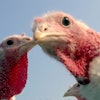
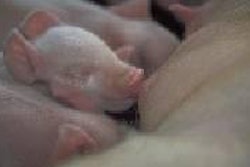
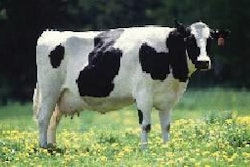
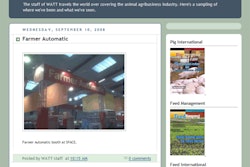
.jpg?auto=format%2Ccompress&fit=crop&h=167&q=70&w=250)


